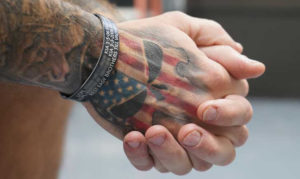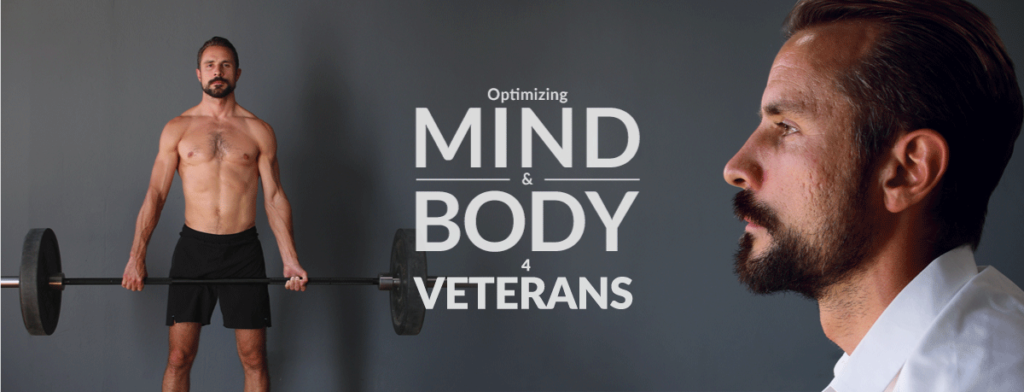Long-Term Care is the Right Choice for Veteran Addiction Treatment
It is no surprise that many veterans of the armed forces live through intense trauma. This trauma occurs while deployed overseas and when in combat. For some, this trauma they experience while fighting for our freedom becomes too much. Many vets find an answer to cope with their pain with drugs and alcohol. The price our vets pay for their brave acts can lead them down a path of substance abuse that becomes too hard to face alone. Luckily for our heroes, they can find help by seeking substance abuse treatment.
The problem is that choosing where to seek this help can be tricky. Other treatment centers offer all kinds of care. Our vets face the choice of where to heal and for how long. At Tree House Recovery, we believe there is only one treatment model fit to attain long-term sobriety. Long-term substance abuse treatment is the only model that offers the correct time needed to heal the brain and body of our vets, but more importantly, the whole person.
How Common is Substance Abuse Among Veterans?
For many veterans, a second battle when returning home is becoming all too common. This battle is a fight for their lives against substance abuse. Stats paint the picture of how dangerous the risk is for U.S. veterans to fall victim to substance use disorder (SUD).
The Substance Abuse and Mental Health Services Administration provides info on how common substance use is among veterans. They also show how this problem has progressed since before the Vietnam War.
- 1.5 million veterans older than 17 have a substance use disorder (1)
- Around 1 out of every 15 vets has SUD (1)
- Vets who served before Vietnam had a 3.7% prevalence rate of SUD (1)
- This number has more than tripled to 12.7% for vets serving since 2001 (1)
While alcohol is the primary substance reported to be abused by vets, it is not the only substance used. Veterans report living with extreme pain at a higher rate than average citizens. Living with pain puts vets at a higher risk of becoming dependent on opioids when compared to the rest of the country.
The National Institute on Drug Abuse provides stats on how prevalent the use of every substance is among veterans.
- Street Drugs- 10% of vets treated were using heroin, while 6% treated used cocaine. (2)
- Opioids- 9% of vets report severe pain vs. 6.4% of civilians. (2)
- The number of vets that overdosed on opioids rose from 14% in 2010 to 21% in 2016. (2)
- 24% of vets receive an opioid prescription from the VA. (2)
- Alcohol- 56.6% of vets used alcohol every month vs. 50.8% of non-vets. (2)
- 65% of vets in treatment abuse alcohol, double the average population. (2)
Numbers tell the story all too clearly. SUD is a serious problem facing our veterans today. Veterans who deserve to live a life free from addiction and whose brave acts have helped to preserve our freedom. Sadly these courageous acts are often the cause of PTSD, which leads to SUD in the first place.
PTSD and Substance Use Disorder
Post-traumatic stress disorder (PTSD) is common among veterans. Even worse, PTSD is related to substance use disorder. Those who see combat in the service may leave with PTSD due to the trauma they live through overseas. Veterans who wish to escape their PTSD may turn to substances as the only option to self-soothe.
The Department of Veteran Affairs (the VA) states that PTSD can lead to sleep problems. Those with issues sleeping may turn to substances to help them relax. Using substances to relax can lead to dependence. The VA also says that while many use substances to numb the intense memories of their trauma, it will only worsen their emotional problems. Drugs and alcohol become the only tool that temporarily allows veterans to cope with their PTSD.
How often do PTSD AND SUD co-occur?
According to the VA:
- 2 out of 10 vets with PTSD have SUD. (3)
- 1 in 10 veterans from Iraq and Afghanistan have a SUD (3)
Treatment Options and Comparisons
Veterans who come home to civilian life already face several problems. Problems include:
- Learning to live as a civilian.
- Finding a new career.
- Attempting to heal from their traumas.
All of these problems, along with PTSD and SUD, lead to a difficult time coping without help.
The first step to getting the help so badly needed is admitting there might be a problem. Our vets are proud people who do not back down from a fight. We are here to tell them that asking for help is the bravest thing one can do. But there is more work to be done besides admitting a problem. The next step is choosing where to get that help.
A quick search on Google will give you endless treatment centers to choose from. All these treatments promise the same thing to a vulnerable and lost person. They offer a life free from SUD and the help needed to cope with trauma. It is vital to note that not all treatment is equal.
Long-term treatment has been found to have significantly better results for patients than short-term treatments. Longer time away from substances gives the brain a chance to heal. More time spent in treatment also allows patients to learn new skills needed to maintain sobriety. Skills learned in therapy can be practiced in a safe place where failure does not mean relapse. They can learn from their mistakes in a controlled environment and apply these lessons when they graduate.
The article “A Comparison of Long-Term and Short-Term Residential Treatment Programs for Dual Diagnosis Patients,” from Psychiatry Online, backs this statement.
- The mean time in treatment for patients in the study who stayed sober was 624.9+578 days. (4)
- The mean time in treatment for patients still with SUD was 165+228.2 days. (4)
- Patients in long-term treatment were more likely to engage in treatment. (4)
- Patients in long-term treatment were less likely to become homeless after discharge. (4)
Tree House Recovery offers an initial 150-day program along with aftercare options. Aftercare and our initial treatment will provide the most time in a safe place for the person to heal. We allow vets to learn and practice skills taught by trained substance abuse pros. THR gives those who commit to our program a chance at a new life by providing long-term treatment. Our approach is supported by research and will help you to achieve a life free from SUD.
Most importantly, though, once one graduates THR, they stay a part of the Tree House family for life. We are always a support group for our graduates to lean on at times of need. The journey does not end at graduation and is only about to begin. Because we understand this, our night-time IOP programs and support after graduation offer a continued growth process. If you are ready to commit to long-term treatment and a life of sobriety, call us today.
Veteran Addiction Recovery Stories
At Tree House Recovery, we value science and research in making a treatment model that works. Our 3 to 5 month treatment model ensures the best outcomes for our clients. What we value even more than science is the actual feedback from our current clients and graduates. Here is a testimonial from one of our veterans who has pride in being part of the THR family:
- Dana Joerger, U.S. Army veteran- “As a veteran, I have gone to in and out-patient treatment centers, both private and government provided. My longest program had the option of 60 days inpatient. For every program I attended, the common guidance was the longer someone stayed inpatient, the better the likelihood of a life in sobriety. At Tree House Recovery, the program in place is very unique for anyone but especially a veteran. This program provides direct theory/process application. Every aspect of this program not only has been researched and dialed in for effectiveness but has been lived through by the staff. The staff and clients all check egos at the door and are able to communicate directly. Veterans having a voice that is honestly heard and responded to creates an environment of success. That is what Tree House does above the rest.”
TREATMENT FOR VETERANS
Ready to conquer this battle? THR is here to help by making an individualized purpose-built treatment plan that works for you. Our treatment teams are trauma and SUD experts. The team uses proven methods that will resolve your struggles and help you regain control of your life. As a veteran, you have already proven your strength. Our approach will build your strength using evidence-based practices. We offer a Mind-Body & Team approach that will help optimize your mental, physical and social fitness
Evidence-Based
Our approach integrates the best available research, using evidence-based methods that work.
- Cognitive-Behavioral Therapy
- Cognitive Processing
- Mindfulness-Based Cognitive
- Therapy
- Motivational Enhancement Therapy
- SUD Fitness Therapy
- Acceptance and Commitment Therapy
- Interpersonal Psychotherapy
- Family Therapy
Learn about how the Tree House Recovery Program can help veterans get the long-term addiction treatment needed today. Call now for a fast, confidential assignment now (503) 850-2474.
Cited Sources:
- https://www.samhsa.gov/data/sites/default/files/report_1969/Spotlight-1969.html
- https://nida.nih.gov/publications/drugfacts/substance-use-military-life#:~:text=Sixty%2Dfive%20percent%20of%20veterans,that%20of%20the%20general%20population.
- https://www.ptsd.va.gov/understand/related/substance_abuse_vet.asp
- https://ps.psychiatryonline.org/doi/10.1176/appi.ps.52.4.526
Contact Us:
CAN I AFFORD TREATMENT?
WE STRIVE TO MAKE SURE THAT TREE HOUSE IS AN OPTION FOR EVERYONE. OUR ADMISSIONS COUNSELORS WILL EXPLAIN YOUR MANY CHOICES AND WORK WITH YOU TO ENSURE THAT TREE HOUSE IS A POSSIBILITY.
WILL INSURANCE COVER TREATMENT?
WE ACCEPT MOST MAJOR PPO INSURANCE POLICIES. OUR ADMISSIONS COUNSELORS WILL SPEAK WITH YOUR INSURANCE PROVIDER TO DETERMINE WHAT YOUR POLICY COVERS.


